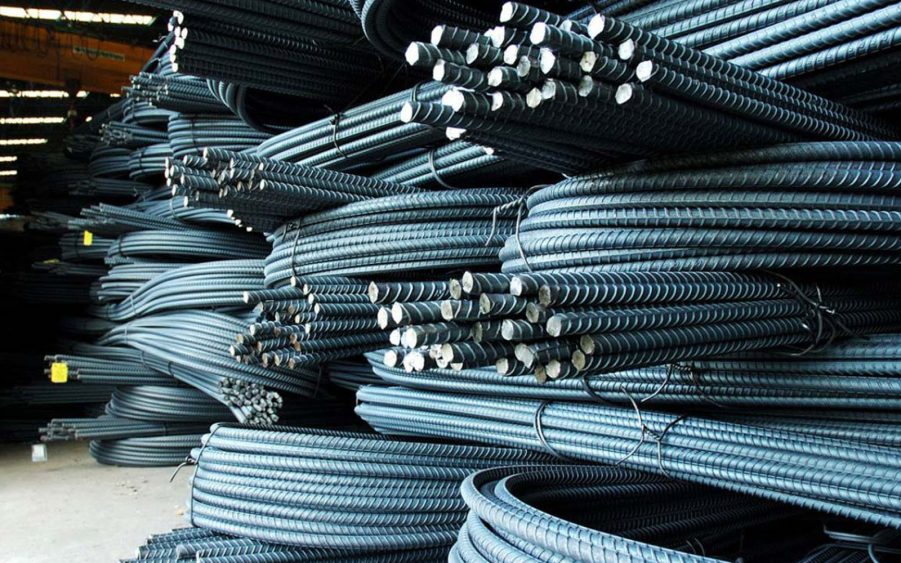That the Nigerian steel manufacturing sector, arguably the most critical element in the nation’s industrialisation drive, is massively threatened by smuggling and racketeering, is a development government should worry about. The whole industrialisation exercise seems to be one big joke, not only because the Federal Government has grossly neglected the moribund steel sector for long, but also because illegal importation of steel flourishes in many parts of the country today, with little or no government intervention.
The significance of an efficient and viable steel industry to any economy that takes manufacturing and its real sector seriously cannot be overemphasised. For one thing, it is fundamental to the industrial process and operations of many sectors of the economy, considering that literally, all the equipment used in production come from steel. Just as steel is crucial in the industrial space, it is highly relevant in the domestic front as well. Many home appliances and tools, ranging from electronics to things as basic as cutlery and kitchen utensils, not to mention building materials, have most of their parts fabricated from steel. Hence, it is safe to say that Nigeria’s pursuit of a meaningful infrastructural turnaround as a means of meeting its Millennium Development Goals might be a mirage after all.
The scourge of steel smuggling
A recent revelation by the Galvanised Iron and Steel Manufacturers Association suggested that Nigeria might be losing a whopping N53 billion to steel smuggling annually. A syndicate of saboteurs is alleged to import container loads of steel worth $5 million illegally into the country every week.
Apparently, the smuggling and bootlegging activities are facilitated by the Nigerian Customs Service’s abandonment of a procedure called pre-shipment inspection, which ensures that goods imported into the country are meticulously examined at the point of entry. The development is a further dent on Nigeria’s ill reputation for rudderless border management and control. Consequently, the steel market is saturated with a great many substandard products illegally imported from abroad at the expense of locally manufactured ones. Consumers generally prefer the smuggled products to the local ones on the ground that they are cheaper, even though the latter is superior in terms of quality.

How reforms are stunting local production
It is worthy of note that hostile government policies are limiting the sector’s enormous promise. The high cost of local steel, interestingly, stems from outrageous tariffs imposed by the government on raw materials used in steel manufacturing. That in itself, is a major challenge manufacturers have had to confront with the passage of time. For instance, 35% tariff is currently charged on a cold rolled sheet, a critical raw material in fabricating roofing sheets and a couple of other products.
For an industry that has suffered arrested development over the years, the current crisis suggests that a total sector collapse is imminent. Hordes of steel manufacturing companies are closing shop over dwindling patronage. The situation has also resulted in the retrenchment of thousands of employees in the sector in question.
When asked about the smuggling activities and other developments in the sector, a top official of Ajaokuta Steel Company Limited, who spoke to Nairametrics on condition of anonymity, said, “Even if companies are not folding up, production will be down. The steel sector is at its embryonic stage. Steel consumption in Nigeria is very high. Illegal importation is a flourishing business because of the high demand, and most of the steel that comes into the country is substandard. Illegal importation is a result of outright connivance of smugglers with customs officials.”
He went further to identify Benin Republic and some West African countries as the places where most of the substandard goods come from. He blamed the factors responsible for this crisis on government and its policies. Equally lamenting the atrocious neglect of the Ajaokuta Steel Company and Delta Steel Company, the two major steel mills in the country, he said no meaningful progress could be recorded in the industry without resuscitating the plants.
“The political will of the government is lacking. Obasanjo attempted to revive Ajaokuta in 2005 but he didn’t give it to competent hands. In 2008, Yar’Adua terminated the concession.”

The way forward
Our source further added, “We shouldn’t expect something significant to happen until government looks the way of concession or privatisation.” To buttress his point, he reiterated a myriad of benefits Nigeria could reap from an active and efficient steel industry.
“Imagine the impact that a project like the Dangote Refinery construction would have had on the steel sector and the local economy if all the steel being used had been sourced locally. Look at all the rail projects government is also doing in different parts of the country. Don’t forget also that everything in oil and gas requires steel.”
For the sector to be transformed to a robust and efficient venture, the government must take effective measures against the rampant corruption in the Nigerian Customs Service and secure our borders, in order to gain the confidence of local investors. There is also an urgent need to review the steel industry reforms, particularly the downward review of tariffs on raw materials used in producing steel.
Potential contributions of an effective steel industry to the Nigerian economy
The opportunities and potentials in the Nigerian steel sector are diverse. The country currently boasts of over 2 billion metric tonnes of iron ore reserves, making it the country with the second largest deposit in Africa and the 12th in the world, according to a statement made by the Vice President, Prof. Yemi, Osinbajo in 2016.
The industry is said to be capable of saving Nigeria at least $3 billion in foreign exchange every year if local manufacturing of steel is massively explored. Kogi, Abia, Plateau, Kwara, Nasarawa, Benue, Bauchi, and Anambra are among the states that have iron ore deposit in commercial quantities. Interestingly, industry experts have revealed that the first phase of Ajaokuta Steel Company alone can create about 500,000 jobs upon completion.
















